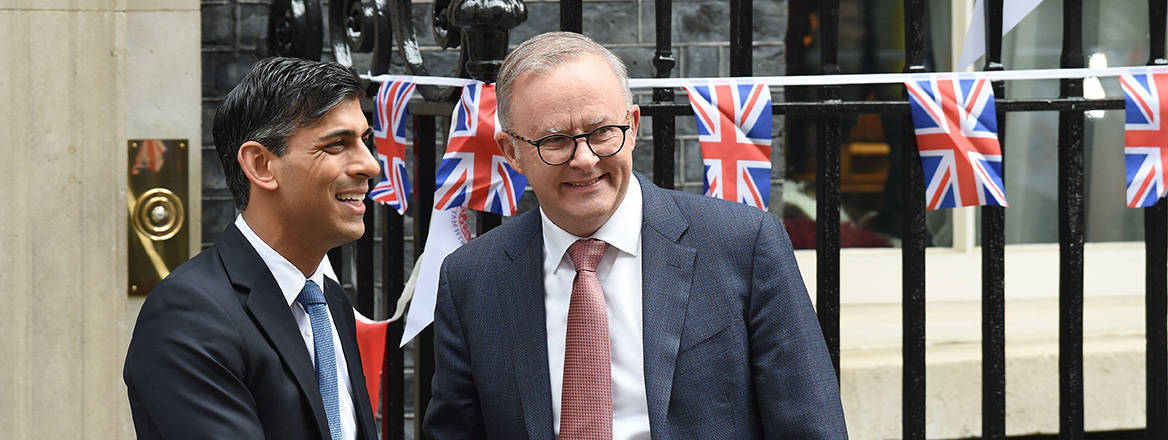Trump’s notoriously transactional attitude, unaccommodating ‘America First’ doctrine and political eccentricity could well torpedo the multi-billion-dollar AUKUS security pact if not for prudent UK-Australian governance, bolder strategic commitments, and pragmatic, forward-thinking relations.
Fundamentally, Donald Trump is a businessman, and the Art of the Deal incumbent will undoubtedly look at one of the most ambitious strategic endeavours with the UK and the historic economic investments (A$368 billion) from Australia with both great intrigue and scrutiny. Despite the member countries’ commitment to the pact, however, Trump will rely on a simple calculus: what are the risks? What assets and liabilities does the US have, and what does the US need? More importantly, what can the UK and Australia offer? After all, despite the appeal of a potential sale, the Virginia-class nuclear-powered submarines would leave US drydocks amid major workforce, backlog and submarine build schedule challenges. Perhaps to Trump this would present a burden too great. No doubt, if he detects any incongruence that may undermine US security or present insufficient benefits, renegotiation or withdrawal would likely be swift and brazen.
Despite the noise Trump’s potential re-election may elicit and how it may affect AUKUS, his transactional approach presents a rarely cited double-edged sword. Consequently, US shipyard distress may be spun two ways: either Trump may recognise this as a cost too great for the US to bear, or he may see it as an opportunity for the US to ameliorate its production woes – and not just to make good on close allies’ promises – and restore the vigour of US shipbuilding and naval power. In this case, the US’s flaw is the UK’s – and especially Australia’s – gain, and both countries would need to convince Trump that they are the solution to such shortfalls. Beneficially, this would also appeal to one of Trump’s major constituencies – blue-collar industry. Moreover, it would present a clear strategic benefit at a time when China is becoming more technologically sophisticated and strategically bolder, and when it continues to consolidate the world’s largest navy.
Transactionally, what could be more appealing than the US’s closest allies playing such a substantial role in the alleviation of its most fundamental anxieties? As such, both Trump’s transactional outlook and his signature ‘America First’ policy could very well be satisfied by AUKUS. Further boons, such as Australia’s promise to fund the US industrial base with $3 billion in direct investment, are a further example of the kind of ‘no strings’ wins for the US that would appeal to Trump. Perhaps more palpably, too, it would demonstrate a firmer commitment to the collaborative allied enterprise and shared global security that Trump so often claims his ‘freeriding’ allies neglect.
Managing Relationships
Though the UK and Australia have cemented themselves as the US’s closest partners, it would be unwise to take this for granted under a possible Trump administration. Such respect, trust and value must be renewed and won all over again, on both the individual and the personal level. Indeed, neither country would be safe from a fiery Trump’s perception of a ‘bad’ deal. This was infamously displayed to the world by the leaked call between Malcolm Turnbull and Trump in 2019, where Trump scolded the former Australian leader over a bad immigration deal proposed by a previous administration. Undeniably, it is Trump’s unpredictability and indifference to established norms that make him so unnerving, particularly as he has been unafraid to reverse substantial deals before – such as the Trans-Pacific Partnership, the Paris Agreement and the Iran nuclear deal – or more recently to exercise tactlessness in his criticism of NATO, one of the US’s major military alliances.
The UK and Australia will need people who are both willing and able to facilitate direct access by establishing personal relationships with Trump and his cadre
Another undermining caveat comes from the sensitivity of relationship-building. Trump is a unique and deeply idiosyncratic personality who is less suited to the typical diplomatist approach of high politics. Instead, his manner resembles the franker, quid-pro-quo style of corporate interaction. So, how will the UK prime minister and Anthony Albanese forge ties with a man they are so unlike? For that matter, how has any politician gone about courting Trump?
Clear and intentional lines of communication will be key. As former Australian Ambassador to the US Joe Hockey said, it will require a ‘rebirth of diplomacy’ and the fostering of closer personal relationships, rather than associations born out of formality and circumstance. Unlike other administrations which are far more procedural, Trump’s governing style is eccentric and unconventional. The real decisions are made within his inner circle. As such, the UK and Australia will need people who are both willing and able to facilitate direct access by establishing personal relationships with Trump and his cadre.
Lessons can likely be learned from the late Shinzo Abe (who courted Trump to adopt the Free and Open Indo-Pacific concept) and Joe Hockey, who both forged strong interpersonal relations with Trump through political galas, dinners, phone calls and golf games alike. This is not to say that AUKUS hangs in the balance of political flattery, but rather that both UK and Australian leadership will need to be prepared to adapt to the unpredictability and unconventionality of Trump, and perhaps to make the compromises that the promise and scale of the AUKUS pact require.
The views expressed in this Commentary are the author’s, and do not represent those of RUSI or any other institution.
Have an idea for a Commentary you’d like to write for us? Send a short pitch to commentaries@rusi.org and we’ll get back to you if it fits into our research interests. Full guidelines for contributors can be found here.
WRITTEN BY
Thomas Corel
- Jim McLeanMedia Relations Manager+44 (0)7917 373 069JimMc@rusi.org


